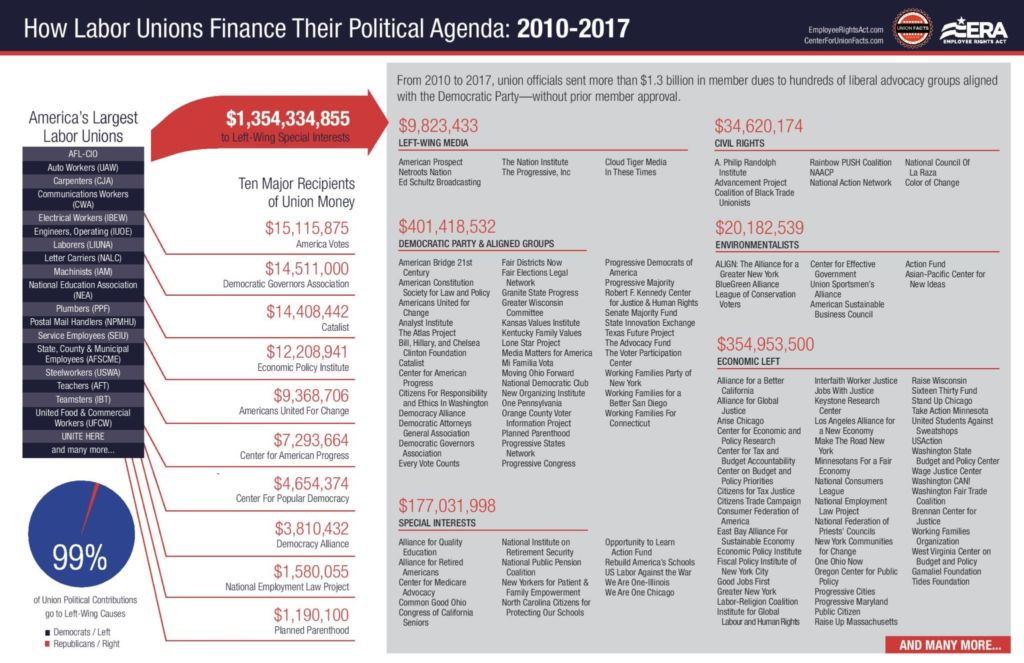Union Dues Used to Finance Political Advocacy Without Permission
As I have previously written about, millions of public employees pay union dues as a condition of their employment.
Are they aware of what or whom these dues support? Does it bother them that they don’t have a voice or choice over where their hard-earned money goes?
It is no secret that public sector unions almost exclusively support one political party and its affiliates.
The Center for Union Facts conducted new research that found from 2010 to 2017, more than $1.3 billion in member dues went to hundreds of liberal advocacy groups aligned with the Democratic Party.
The top two major recipients of union money were America Votes and the Democratic Governors Association, receiving $15 million and $14.5 million, respectively. (You can read about who America Votes is and what the group advocates for here.)

Another organization in the top ten major recipients is Democracy Alliance (DA), the “largest network of donors dedicated to building the progressive movement in the United States” and advancing a “progressive agenda.”
Founded in 2005 by Rob Stein–Democratic operative and former Clinton Administration official–Democracy Alliance has been financially supported most notably by George Soros and Peter Lewis and quickly became a hub of the biggest names in liberal politics.
Membership into the DA is by invite-only, and donors pay annual dues and agree on a set amount of money to give to “recommended” liberal organizations each year. Not surprisingly, many of the organizations DA supports are listed in the data from Union Facts as receivers of big money from union political contributions.
Essentially, Democracy Alliance is a political network of liberal donors who plot how to use their money to advance the left’s agenda in American politics.
But the money DA gets from America’s largest labor unions comes from public employees who may not align with the left side of the political spectrum.
In fact, as Union Facts points out, “roughly 40 percent of union household members vote Republican in any given election cycle.”
Which means the many voices a union claims to represent are silenced if they do not agree with the union’s political positions.
The decision to financially support a union is a decision that employees should get to make for themselves, not one that is decided for them. Especially when their dues are being used without prior member approval to advance politics that may conflict with their beliefs.